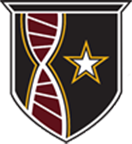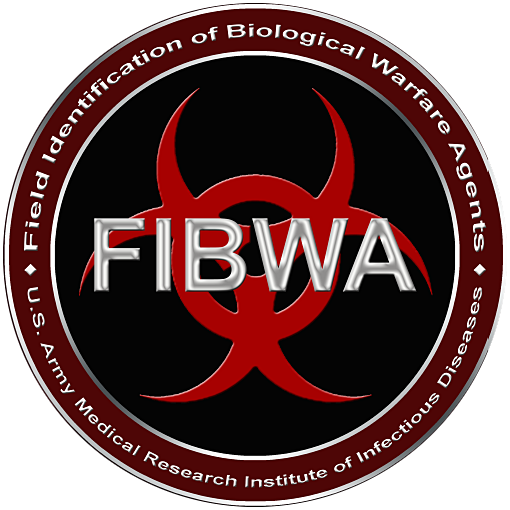Field Identification of Biological Warfare Agents (FIBWA)
02-26 Jun 15 – Jun 17, 2026
02-26 Aug 10 – Aug 14, 2026
*additional sessions will be added if needed
02-26 Apr 13 – Apr 24, 2026
03-26 Jun 1 – Jun 12, 2026
04-26 Sep 14 – Sep 25, 2026
02-26 Jul 13 – Jul 17, 2026
02-26 May 4 – May 15, 2026
*Requires completion of Phase I online prior to attendance
The Persian Gulf War brought about a significant need for battlefield detection of biological warfare agents in efforts to stay ahead of Iraq's growing biological weapons program. As detectors were developed and deployed, the ability to confirm what the detectors were "seeing" was crucial to add confidence for battlefield, medical, and National Command Authority decisions. The requirement for a deployable biological warfare agent confirmation laboratory was born.
The Army's initial deployable laboratory was the 520th Theater Army Medical Laboratory (TAML). Following Operation Iraqi Freedom in 2003, the 520th TAML was reorganized into the 1st and 9th Area Medical Laboratories (AML), and then into the 1st Global Field Medical Laboratory (GFML). The GFML represents the foundation for deployable biological warfare agent detection systems in the Army medical system.
With development and deployment of biological warfare agent detection assays, the need for transition to field deployment and subsequent training of personnel was necessary. A training course was developed to train individuals in polymerase chain reaction and enzyme linked immunosorbent assays. Currently, the FIBWA course offers the most advanced fieldable technologies for confirming biological warfare agents.
Following the completion of the FIBWA courses, students are trained to set-up, maintain, and operate a deployable confirmatory laboratory under field conditions. The deployed laboratory capability is a biological warfare testing resource for Combatant Commanders and Theater Surgeons.
More than 1,200 students across the armed services, DoD civilians, and foreign scientists have attended since the inception of the course in 1999. Training opportunities increased in 2003 with the addition of new training facilities that provide laboratory space for eight students per class retaining the individualized instruction process.
In 2005, the National Guard Bureau began using the FIBWA training program as the foundation for the advanced biological component of their Civil Support Teams (CST). These teams, assigned to each state and territory, form the foundation of a highly specialized weapons of mass destruction (WMD) response element.
The 2014 Ebola epidemic in West Africa killed tens of thousands of people and elicited a world-wide response. FIBWA implemented the FIBWA-EZ Ebola Diagnostic PCR training course to rapidly spin-up more than 100 scientists and technicians deploying to Liberia for laboratory support of the public health efforts.
During the SARS-CoV-2 (COVID19) pandemic of 2019-2021; the FIBWA program trained and "certified" numerous active-duty laboratory technicians to CLIP standards to supplement DoD clinical diagnostic capabilities primarily on the Korean Peninsula. Ensuring there were adequate staff to supplement the demand in patient testing workload. The pre-deployment training/certification allowed for assets to arrive on site "ready" to test patient samples with minimum on-site training requirements.
This year the FIBWA courses are being restructured to align with the evolving biological threat landscape outlined in the 2023 Biodefense Posture Review. This will ensure warfighters are prepared to counter current and future threats. The training aims to strengthen the Department of Defense's ability to protect against and respond to biological threats, ensuring Joint Force readiness and resilience through 2040 and beyond.
Please reach out to our staff to register for courses or inquire about course content, on site exercise support or customized training.
301-619-7166/8656
DSN: 343-7166/8656
Email: usarmy.detrick.medcom-usamriid.mbx.fibwa@health.mil
Current Course Offerings:
FIBWA Foundations – Phase I: online, Phase II: 1 week
FIBWA Advanced – 2 weeks
FIBWA Manager's Short Course – 3 days
FIBWA Manager's Long Course – 1 week
FIBWA Basic Methods – 1 week
FIBWA Molecular Methods – 2 weeks
FIBWA WMD-CST Course – 2 weeks
FIBWA Special Interest Training
- Team/Unit-specific training support
- Mobile Biosurveillance Teams
- Deployed Laboratory Forward/Public Health
- Mission-specific training support
- BW Biosurveillance and ID
- Field Confirmatory/Theater Validation
- Whole Genome Sequencing (WGS)/Pathogen Discovery
- Event/Project-specific training support
- JUPITR - Korea
- BW Capacity Building Turkey
- West Africa 2014
- Technical - Rapid BW detection/identification training
- WGS: MiSeq, MinIon
- PCR: Biofire FilmArray, ABI 7500
- ECL: PR2, MagPix
- Accessory methods culture/microscopy/biochemical
The FIBWA courses are grounded in an understanding of laboratory methods taught by the course staff and supported by subject matter experts at USAMRIID. Training not only encompasses the ability to perform the assay but includes knowledge of the science behind the results. This expands the student's ability to troubleshoot and clearly communicate the results to Commanders for effective decision making.
Selection of training equipment and technology is integrated with the Joint Program Executive Office for Chemical and Biological Defense (JPEO-CBD). Concepts of Operations and reagents are continually evaluated and transitioned to the field and into the training program to ensure that FIBWA training is relevant and on the "Cutting Edge." While these courses are designed for organizations within the DoD, special considerations can be made for other governmental agencies.
FIBWA Foundations Course: This is an 80-hour course that focuses traditional microbiological methods for the identification of biological warfare (BW) agents. Lectures focus on the history of BW, the science behind each methodology, specific characteristics of each organism and specific troubleshooting techniques. We teach gram straining, manual identification (ID) methods and semi-automated ID and antibiotic susceptibility testing using the autoSCAN-4. A multi-day field situational training exercise provides an opportunity to integrate training with real-world scenarios that challenge the student's understanding and skills.
FIBWA Advanced Course: This is an 80-hour course that focuses molecular methods of biological warfare agents using several polymerase chain reaction (PCR) methods. Additionally, we expect to add next generation sequencing later this fiscal year. We also introduce electrochemiluminescence (ECL) methodology in this course for toxin detection. Lectures focus on the history of BW, the science behind each method, characteristics of each organism and troubleshooting techniques. A multi-day field situational training exercise provides an opportunity to integrate training with real-world scenarios that challenge the student's understanding and skills.
FIBWA Manager's Course: This is a three-day course designed to introduce leaders to the management of biological warfare agent identification. Emphasis is on current biodefense policy, threat analysis, laboratory operations, and methodologies (both current and developing). Hands-on opportunities are provided for core laboratory technologies. Tabletop exercises are conducted at the completion of the course.
FIBWA NGB CST: This course is provided exclusively for the National Guard Bureau Civil Support Teams (CST). It consists of two weeks of CST specific instruction culminating in a multi-day situational training exercise.
FIBWA Special Interest Training Courses: These courses are developed based on customer training requirements. Courses can range from days to weeks depending on the breadth of information needed and any requirements for certifications. Examples include training on newly fielded systems and technologies.
FIBWA On-Site Exercise Support: The FIBWA team can provide on-site training, troubleshooting and/or unit evaluations on site during unit training exercises. Sample support can also be included to assess the effectiveness and competency of the units.
Sample Support: FIBWA courses also now coordinating efforts with the Biodefense Reference Material Repository (BRMR) for sample support and to provide certified reference materials to test and maintain the competencies of laboratory technicians and analysts who have completed the FIBWA training. BRMR is an ISO 17034 accredited certified reference material producer that can provide field-deployable laboratory units with viable and nonviable surrogate organisms. These surrogate samples are ideal for use as positive controls in molecular and immunological assays and can also be used as blinded samples during competency assessments and field exercises. The BRMR is in the process of expanding its laboratory services to include an ISO 17043 proficiency testing program, which will help field laboratories routinely evaluate and document their proficiencies at performing various biodefense related assays.
Contact Information:
USAMRIID
1425 Porter Street
Fort Detrick, MD 21702
301-619-7166/8656
DSN: 343-7166/8656
Email: usarmy.detrick.medcom-usamriid.mbx.fibwa@health.mil
 An official website of the United States government
An official website of the United States government
 ) or https:// means you've safely connected to the .mil website. Share sensitive information only on official, secure websites.
) or https:// means you've safely connected to the .mil website. Share sensitive information only on official, secure websites.

